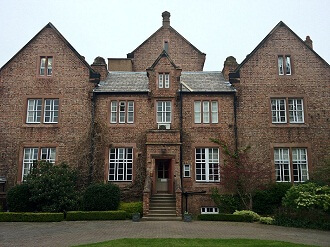Council Orders University to Demolish “Hazardous” £120m Science Park
Council Orders University to Demolish “Hazardous” £120m Science Park

Chester University has been ordered to demolish its £120m science and engineering park, after the local council and Health and Safety Executive (HSE) ruled that the site was too hazardous for student use.
The 66 acre complex, comprising science laboratories, lecture theatres, a three-floor energy centre and world-class computer facilities, has been deemed too close to Stanlow Oil Refinery – which is classed as a hazardous institution.
As a result of this dangerous proximity, the science park must meet stringent safety standards in accordance with the Control of Major Accident Hazards Regulations 2015.
Cheshire West and Chester Council rejected a retrospective planning application for the state-of-the-art Thornton Science Park – which has been used by the university since 2014 – on HSE advice that the centre was fit for industrial or employment use, but not for education.
The university says it is “surprised and disappointed” at the decision, and alleges that when multinational oil company Shell first gifted them the site, council officials repeatedly stated that there was no need for the college to submit a “change of use” application to convert the site for academic uses.
Problem caused by “fundamental” planning permission oversight
Developers are not obliged to obtain planning permission for a new site if it falls within the same “use class” as the current site, or if the Town and County Planning (General Permitted Development) Order allows for one use to be changed for another, specified use class.
This leeway removes unnecessary planning applications and enables commercial, retail sites to easily transfer between different kinds of retailers – for example, from a fashion outlet to a book store – without excessive paperwork.
In the case of Chester University’s science park, Shell’s site was classified as “sui generis” – a rare anomaly that did not belong to one specific use class for planning purposes.
When Chester became aware of this status in 2017 whilst applying for planning permission for several, smaller developments at Thornton, the university sought to change the centre’s classification from sui generis to “a non-residential institution”, under category D1.
HSE are consulted in category change applications, and quickly determined that the site posed an “unacceptably high risk” to students, due to the possibility of an explosion or gas leak at the nearby oil refinery.
The debacle has led politicians to call for an independent inquiry in order to establish why the issue was not raised sooner, and planning permission was not initially sought.
Ellesmere Port and Neston MP Justin Madders said he was “appalled” that “vast sums of public money” had been wasted on “something as fundamental as planning permission,” adding that it was unclear whether the university or council was at fault.
University to appeal council’s decision
Leaders from the university have stated that they intend to appeal the council’s decision to the Secretary of State and will continue using the centre for classes in the meantime.
Vice Chancellor Tim Wheeler said the facility was:
“too important for the university, the wider region and national commercial interests to accept this decision without challenging it.”
“Thornton Science Park is a unique site, bringing an additional £60 million into Cheshire West and Chester each year in employment and educational and economic benefits,” Wheeler added.
Students at the science park are all over the age of 18 and trained in health and safety measures. As such, the university will likely argue that they are more akin to employees than school children for the purposes of the regulations.
The council however, maintained in a statement that it acted on the advice of the HSE, which holds a statutory role in planning applications around major hazard sites, and whose input must be “treated with the upmost seriousness” in such cases.
Gill Watson, council planning committee chair, called it a “difficult decision” to close the park, but held that “the health and safety of … residents” must be the “first priority.”
Contact IBB’s commercial property development and dispute resolution experts
Whether you are acquiring, disposing of, developing, managing or funding commercial property, we can help. Or if you are an individual or organisation facing a development or planning permission dispute, call our experienced property lawyers today for expert, impartial and professional advice on 01895 207285, or email us at CRE@ibblaw.co.uk

